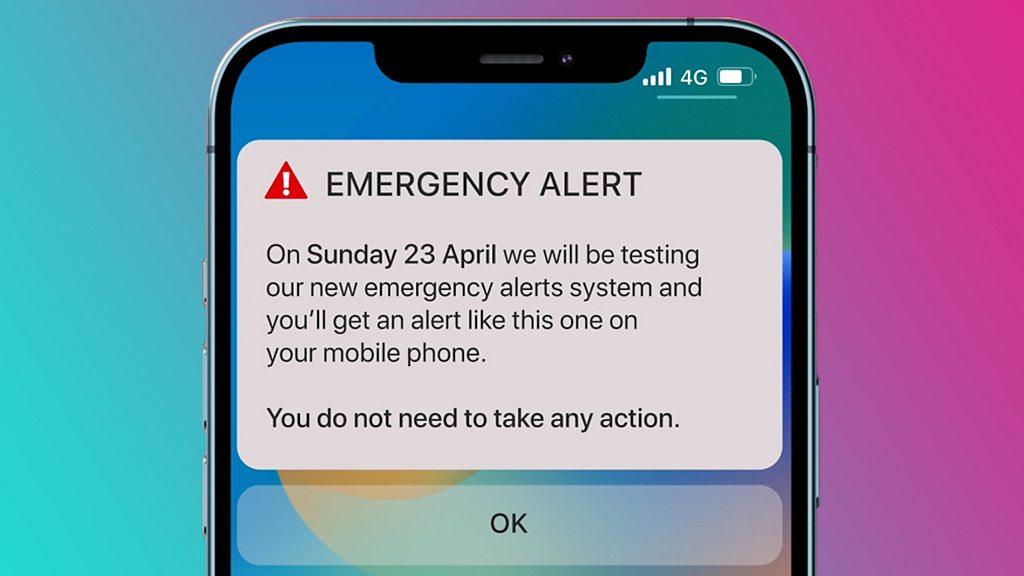The UK is gearing up for a countrywide emergency alert trial. Specialists in the field of cybersecurity are issuing a warning to be vigilant against possible phishing scams. There is a high possibility that fraudsters will seize this notable occasion. Using it as an opportunity to circulate damaging emails or messages disguised as formal governmental correspondence.
Fraudsters are adept at replicating the language and formatting of authentic government communique. This poses a significant challenge for recipients to discern between real alerts and fraudulent phishing attempts. They capitalise on public trust in formal announcements intending to dupe unsuspecting citizens into interacting with harmful hyperlinks or divulging confidential personal information.
Phishing Ploys Amidst the Emergency Alert Trial
At 3 pm, every citizen will be alerted through their mobile devices, accompanied by sounds and vibrations that will last for ten seconds. Scheduled for Sunday, the siren rehearsal presents a prime opportunity for initiating phishing scams targeting the general populace.
Fraudsters are becoming more adept and innovative, rapidly conforming to societal demands and anticipations. Experts expect fraudsters to exploit the national alert exercise to deceive residents. Nick France, Sectigo’s Chief Technology Officer, cautions that even though the alert won’t come through email or text message, fraudsters might take advantage of the public’s limited knowledge of the government’s alert system.
A History of Exploiting Governmental Announcements
Fraudsters exploiting government notifications is not a new phenomenon. The UK Government’s announcement of energy voucher distributions through SMS last year led to comparable phishing attempts.
According to the Office for National Statistics, half of the population reported receiving a phishing message in the past month. Norton Antivirus software blocked over two million phishing attempts in the final quarter of 2022 alone.
Fraudsters often take advantage of national projects to target individuals, especially those that incite a sense of urgency. They exploit the public’s faith in governmental and formal correspondences to trick citizens into surrendering confidential information or to engage in activities that primarily benefit the attackers.
Counteracting Phishing Schemes
To guard oneself against cybersecurity scams, it’s critical to comprehend the characteristics of the official test alert. The message will read: “This is a test of Emergency Alerts, a new UK government service that will warn you if there’s a life-threatening emergency nearby. In a real emergency, follow the instructions in the alert to keep yourself and others safe.” Recipients merely need to swipe away the message or select “ok” to proceed as usual.
Lisa Webb, a cybersecurity expert at Which?, highlights that no additional action is necessary upon receipt of the alert. If a request to download an application or furnish information is ever made, it’s almost certainly a deceptive attempt by a fraudster and should be disregarded.
The Government’s Stance
The government has clearly stated that only governmental bodies and emergency services have the authority to send Emergency Alerts. They will also implement a secure authentication process for their transmission. Furthermore, Emergency Alerts are designed to be easily distinguishable in appearance and sound from other types of messages, such as SMS text messages, by employing one-way broadcast technology to enhance security.
As we approach the national siren trial, it becomes crucial for the public to stay vigilant against potential phishing schemes. Consequently, by bolstering fraud awareness and understanding the specifics of the official test alert, as well as disregarding any suspicious requests, individuals can maintain a step ahead of these deceitful actors.



